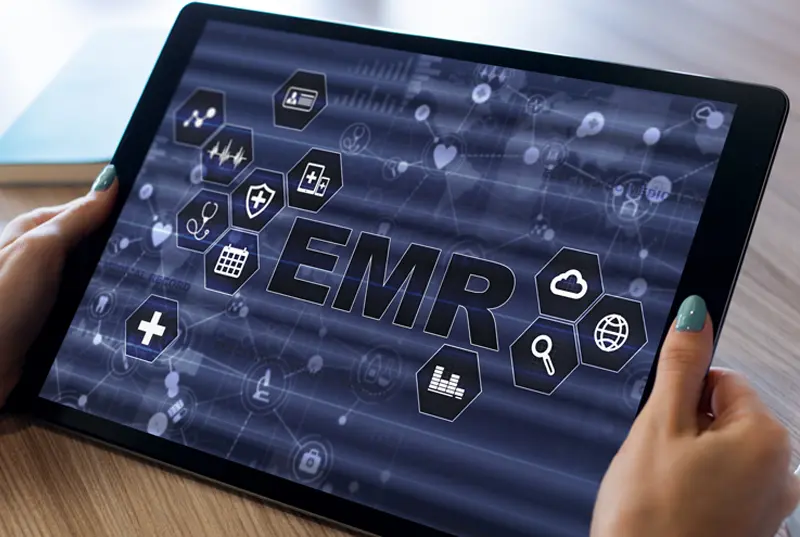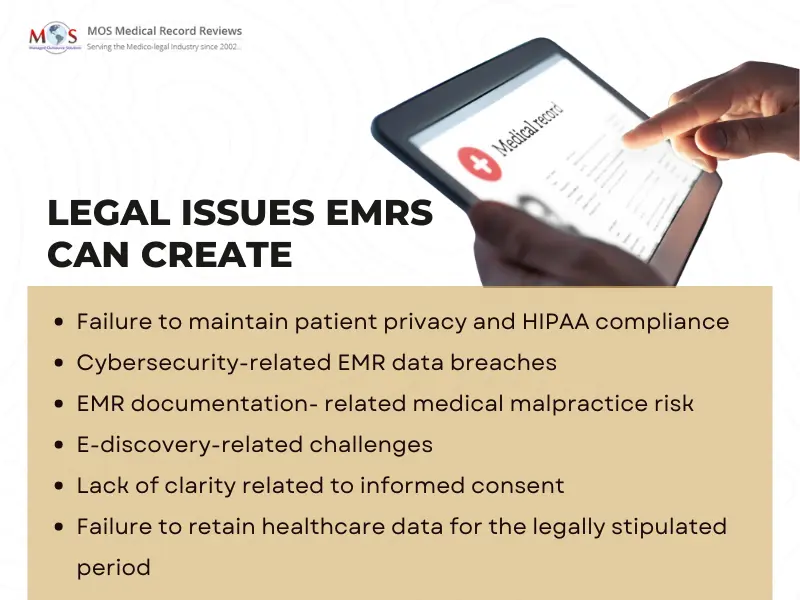In the rapidly evolving landscape of healthcare, the implementation of Electronic Medical Records (EMRs) has revolutionized patient data management and facilitated improved healthcare delivery. EMRs have also significantly streamlined the process of medical records review, revolutionizing the way healthcare professionals access and evaluate patient information. Unlike traditional paper-based records, EMRs offer a comprehensive digital platform that also simplifies the delivery of medical review solutions. With EMRs, healthcare providers can swiftly navigate through a patient’s entire medical history, including diagnoses, treatment plans, medications, and test results, all at their fingertips. This accessibility promotes efficient decision-making and enhances patient care by enabling practitioners to quickly identify trends, monitor progress, and make informed clinical judgments.
Additionally, EMRs facilitate collaboration among healthcare teams, allowing multiple professionals to simultaneously review records, share insights, and coordinate care seamlessly. EMRs have user-friendly interfaces that simplify medical records review for medical and legal purposes. However, alongside these benefits, EMRs also bring a number of legal challenges, including those related to HIPAA adherence.
Benefit from HIPAA-compliant medical record review solutions!
To explore MOS’ user-friendly solutions, call 800-670-2809.
Legal Hurdles with Electronic Medical Records
Patient privacy and HIPAA compliance:
EMRs contain sensitive and personal medical information, making adherence to the HIPAA regulations very important. Failure to secure patient data within EMRs can lead to severe legal repercussions, including fines and reputational damage. Providers must implement robust data encryption, access controls, and audit trails to ensure HIPAA compliance and protect patient privacy.
EMR data breaches and cybersecurity:
The digital nature of EMRs makes them vulnerable to data breaches and cyberattacks. Unauthorized access to patient records can result in identity theft and compromised medical care. Legal consequences can include class-action lawsuits, regulatory penalties, and damaged patient-provider relationships. Healthcare entities must invest in robust cybersecurity measures, conduct regular vulnerability assessments, and establish incident response protocols to minimize the risk of data breaches.
Medical malpractice and EMR documentation:
EMRs play a pivotal role in medical malpractice cases, with electronic records serving as evidence in legal proceedings. Inaccurate or incomplete documentation within EMRs can lead to misunderstandings, misdiagnoses, and patient harm. Properly documenting patient encounters, treatment plans, and medical decisions is not only vital for patient care but also for legal defense in malpractice claims.
E-discovery challenges in litigation:
When EMRs become part of legal proceedings, managing electronic discovery (e-discovery) becomes crucial. Gathering, preserving, and presenting EMR data accurately and comprehensively is essential for a successful legal defense.
Informed consent and EMRs:
The process of obtaining informed consent from patients has evolved in the digital age. Documenting consent within EMRs requires clarity, specificity, and patient comprehension. Legal challenges can arise if consent forms within EMRs are unclear, leading to potential claims of inadequate disclosure.
Data retention and legal requirements:
Laws governing data retention vary, and organizations must adhere to specific regulations when storing EMR data. Failure to retain records for the required period can lead to legal consequences during audits, investigations, or litigation.
The ability to search, sort, and filter data within EMRs expedites the retrieval of specific information, and speeds up records review processes that would be time-consuming with paper-based records. By prioritizing patient privacy, cybersecurity, accurate documentation, and compliance with regulatory requirements, healthcare entities can mitigate legal risks and continue to harness the advantages of digital record-keeping in patient care.





